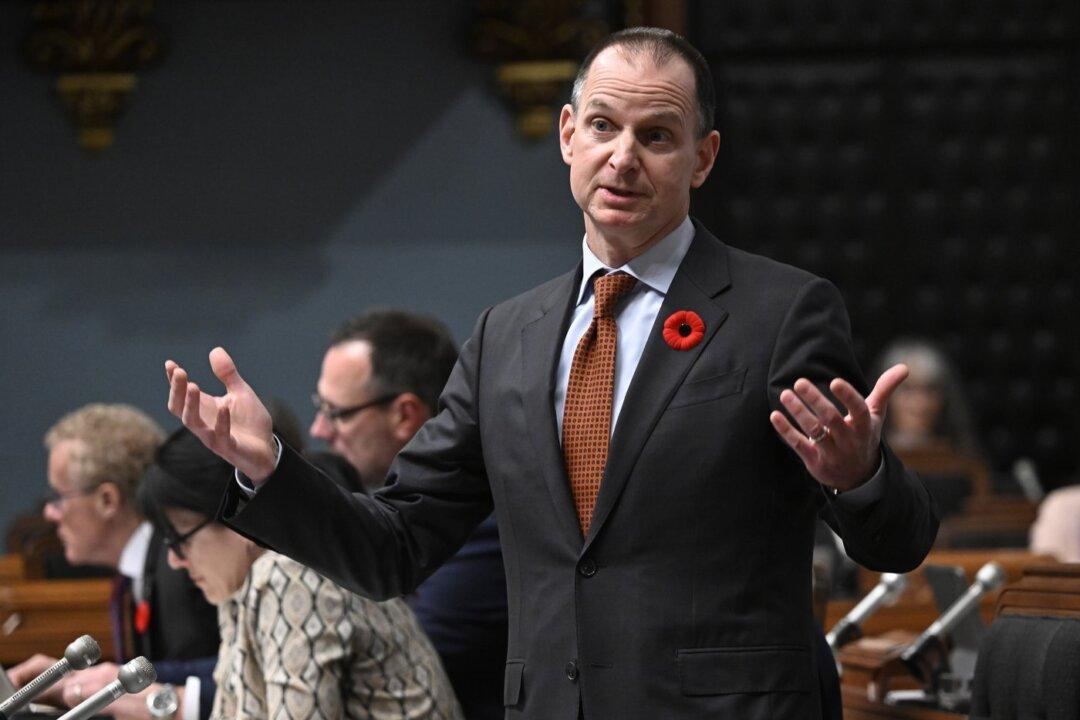Quebec Finance Minister Eric Girard has cut his projections for the province’s economic growth in 2024 and warned that Canada has entered a period of economic “stagnation.”
The next six months will be difficult due to high inflation and interest rates, Mr. Girard said on Nov. 7 after releasing his economic update. To help Quebecers cope with the rising cost of living, the government is increasing certain tax credits and social benefits above the rate of inflation forecast for year, he told a news conference.





